Addiction, Trauma, Adverse Childhood Experiences (ACEs) from Linda Curran
$219 Original price was: $219.$56Current price is: $56.
Shopping Instructions:
- DISCOUNT 15% : SHOP15
- Product Delivery: Within 1 – 12 hours after purchase.
Addiction, Trauma, Adverse Childhood Experiences (ACEs) from Linda Curran
Sale Page : -/-
Description:
More information about Medical:
Medicine is the science and practice of establishing the diagnosis, prognosis, treatment, and prevention of disease.
Medicine encompasses a variety of health care practices evolved to maintain and restore health by the prevention and treatment of illness.
Contemporary medicine applies biomedical sciences, biomedical research, genetics, and medical technology to diagnose, treat, and prevent injury and disease,
typically through pharmaceuticals or surgery, but also through therapies as diverse as psychotherapy, external splints and traction, medical devices, biologics, and ionizing radiation, amongst others.
Medicine has been around for thousands of years, during most of which it was an art (an area of skill and knowledge) frequently having connections to the religious and
philosophical beliefs of local culture. For example, a medicine man would apply herbs and say prayers for healing, or an ancient philosopher and physician would apply bloodletting according to the theories of humorism.
In recent centuries, since the advent of modern science, most medicine has become a combination of art and science (both basic and applied, under the umbrella of medical science).
While stitching technique for sutures is an art learned through practice, the knowledge of what happens at the cellular and molecular level in the tissues being stitched arises through science.
Outline:
- The Origins of the ACE Study
- 10 Categories Studied
- Categories of Abuse
- Physical
- Emotional
- Contact Sexual
- Categories of Neglect
- Emotional
- Physical
- Categories of Household Dysfunction
- Household Substance Abuse
- Mother Treated Violently
- Household Mental Illness
- Incarcerated Household Member
- Parental Separation or Divorce
- Categories of Abuse
- Demographics
- Impact on
- Emotional State
- Mental Illness
- Social Malfunction
- Occupational Performance
- Biomedical Health
- Disease
- Premature Death
- Damage Occurs
- Various “Maladaptive” Coping Mechanisms
- Evidence Against the Disease Model of Addiction
- People Couldn’t Stop Using
- Spontaneous Remission
- Shift to Behavioral Addictions
- DA Response is Immediate
- Different Causes of Relapse
- Evidence Against the Disease Model of Addiction
- Chronic Unrelieved Stress on the Brain
- Disrupted Brain Development
- Epinephrine
- Norepinephrine
- Cortiso
- Dopamine
- Serotonin
- Disrupted Brain Development
- Epigenetics
- Borderline Personality Disorder
- Re-victimization
- Complex PTSD
- Various “Maladaptive” Coping Mechanisms
- Implementing ACE Study Information
- The Addition of 10 Trauma-Oriented Questions
- Treatment
- Neuroscience of Trauma
- Addiction Treatment Trauma
- 12 Step Program vs. Treatment
- Rehab
- Recommendations
- Therapeutic Relationship Complex Trauma
- Therapeutic Alliance
- Clinical Enactments
- Mandated Therapy for Therapists
- Simple Interventions
- The Body and the Brain; Embodiment Circuitry
- 5 Functions of DBT
- Increasing Client Motivation
- Increasing Client Capability
- Generalize Skills
- Increasing Therapist Motivation
- Structure
- DBT Skills
- Mindfulness
- Distress Tolerance
- Emotion Regulation
- Interpersonal Effectiveness
- DBT Interventions
- More on the Phase Model of Treatment
- Simple vs. Complex PTSD
- Trauma Processing Modalities
- Evidence-Based Practice
Please Note: PESI is not affiliated or associated with Marsha M. Linehan, PhD, ABPP, or her organizations.
Description:
Clients are desperately trying to make sense of their symptoms of depression, free-floating anxiety, addictive behaviors, dysregulated emotions, physiological arousal, and seemingly unrelated medical issues. They look to you to create an understanding, provide an accurate diagnosis, and layout an effective treatment approach; however, you find that you can’t without understanding and addressing their “why”. The science is clear and overwhelming about the lasting effects of adverse childhood experiences, developmental trauma, and attachment wounds.
In this video, you will learn key insights regarding the neuroscience of addiction from the Adverse Childhood Experiences (ACE) Study, one of the largest investigations of childhood abuse and neglect, and the impact on later-life health and well-being. You will understand the important assessment and treatment implications from neuroscience that show us addiction is experience dependent, not substance dependent.
You will learn treatment recommendations from the leading experts in trauma and addictions treatment including:
- Bessel A van der Kolk, MD, New York Times best-selling author and the world’s leading expert on psychological trauma
- Vincent Felitti, MD, co-principal investigator of the ACE Study
- Louis John Cozolino, PhD
- Lance Dodes, MD
- Lisa Ferentz, LCSW-C, DAPA
- Jim Hopper, PhD
- Gabor Maté, MD
- Lane Pederson, PsyD, LP, DBTC
- Mary Lou Schack, PhD
Fusing research and theory about attachment and complex developmental trauma, these experts provide invaluable insight that informs our therapy, including:
- The therapeutic alliance, along with all its inherent challenges with boundaries and clinical enactments
- The use of contemplative practices for changing the brain
- Teaching skills for self-regulation
- Evidence-based modalities for both stabilization and processing traumatic material
These experts help illustrate how your clients do not get over or grow out of childhood trauma. These painful experiences, when left unrecognized or untreated, continue to impact us throughout our lifetime; however, with this new insight you can finally say to your client:
Your behavior absolutely makes sense and here’s what neuroscience and the ACE Study tells us about the association between your experiences as a child and your struggles as an adult.
Please kindly contact us if you need proof of item.
Find out more Personal Development Courses at here !!!
1 review for Addiction, Trauma, Adverse Childhood Experiences (ACEs) from Linda Curran
Add a review Cancel reply
Related products
HEALTH & MEDICAL
Gaia—Creating-High-Voltage-Health-with-Glenn-Streeter-Open-Minds
HEALTH & MEDICAL
HEALTH & MEDICAL
CC11 Workshop 06 – Magical Moments in Couples Therapy – Jette Simon
HEALTH & MEDICAL
HEALTH & MEDICAL
HEALTH & MEDICAL
HEALTH & MEDICAL
Matthew Troester – How Much Sleep Do We Need and How to Get It

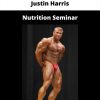

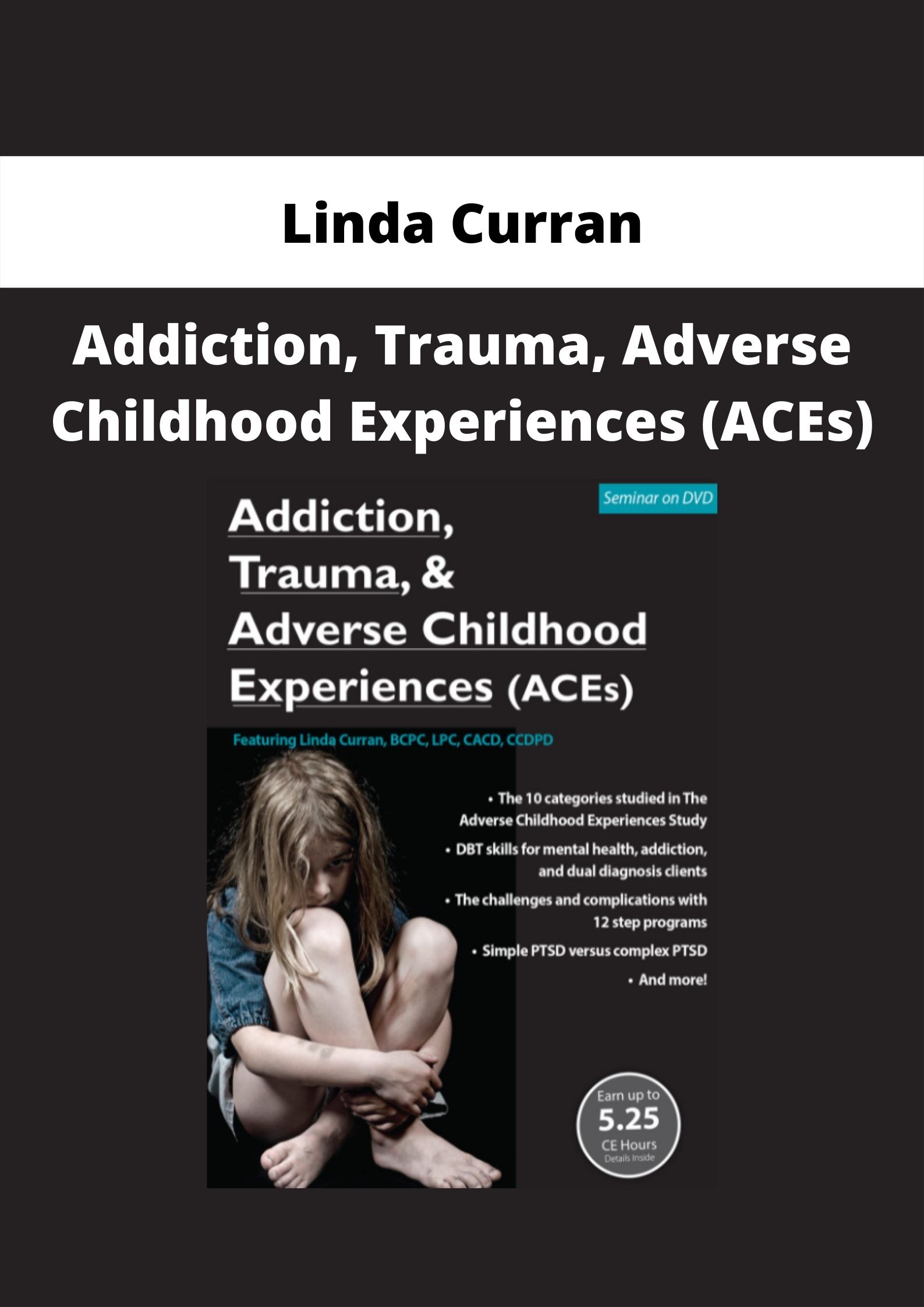
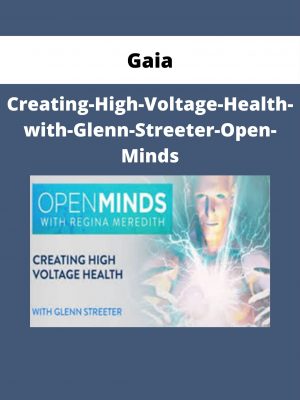

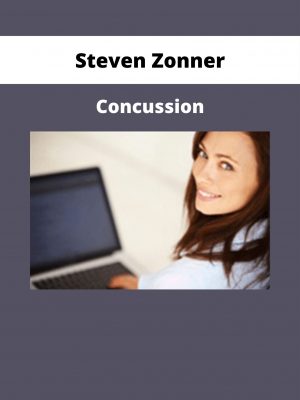
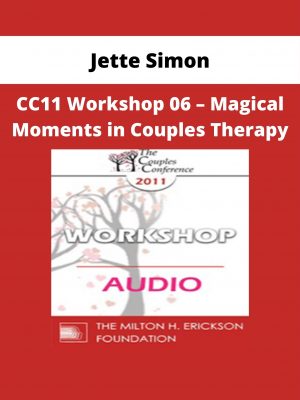
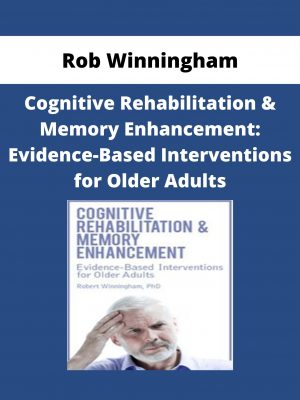
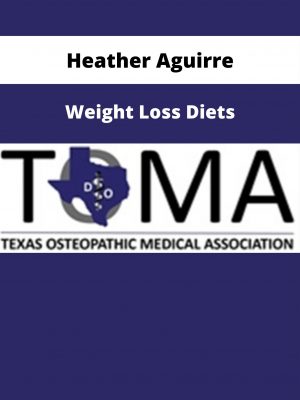
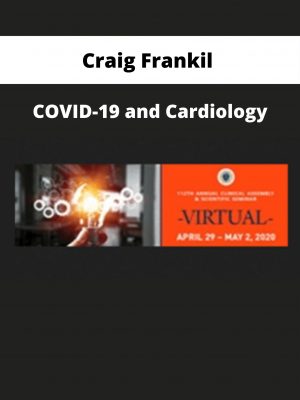
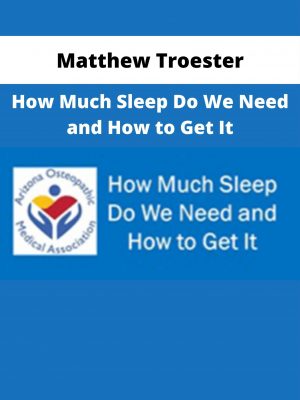
Therese Hickle –
This is Great ! | Addiction, Trauma, Adverse Childhood Experiences (ACEs) from Linda Curran